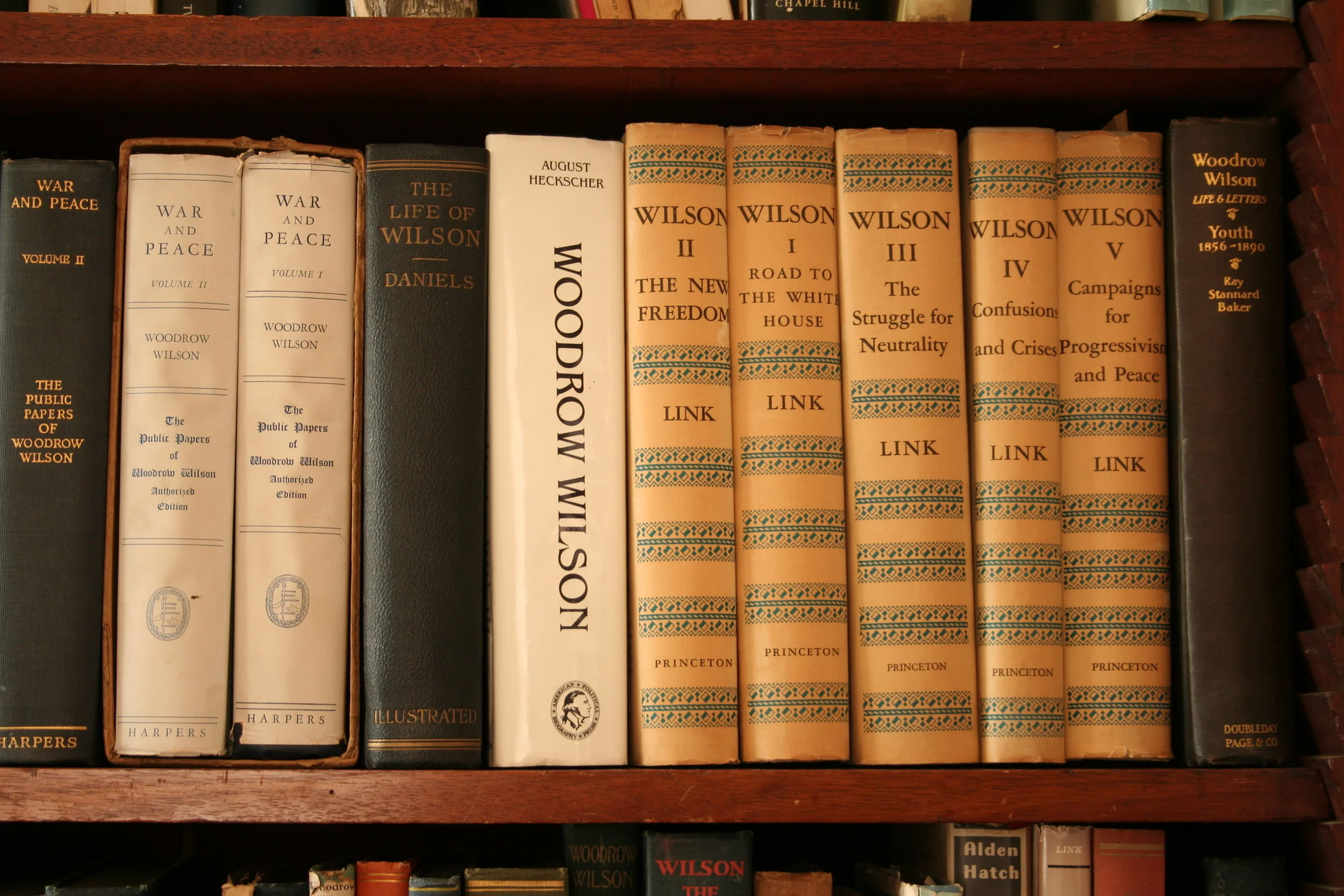Remembering Woodrow Wilson, A Century After His Passing
/It has been 100 years since the death of Woodrow Wilson, the 28th President of the United States. President Wilson’s passing on February 3, 1924, left a profound and complex legacy that shapes our nation and world even today.
The 100th anniversary of Woodrow Wilson's death is an opportunity to reflect not only on his accomplishments and failures but also on the lessons we can draw from his life and presidency. Wilson served as President of the United States from 1913 to 1921. Today, he may be best known for his leadership during World War I. In 1917, he made the difficult decision to enter the war, citing the need to "make the world safe for democracy." His commitment to a peaceful and just world order led to the creation of the League of Nations, a precursor to the United Nations. Wilson was awarded a Nobel Prize for Peace in 1919 for his work in ending World War I and creating the League of Nations. International cooperation and diplomacy remain a cornerstone of American foreign policy.
Wilson's domestic agenda was equally transformative. Along with Franklin D. Roosevelt and Lyndon Johnson, he is one of the three great legislative presidents of the twentieth century. He advocated antitrust legislation that curbed the power of monopolies and promoted competition. He signed the Clayton Antitrust Act in 1914, strengthening existing antitrust laws by prohibiting certain business practices that lessened competition. This legislation laid the groundwork for subsequent antitrust enforcement efforts and continues to influence antitrust policy today.
After the Civil War, the U.S. banking system was fractured and unstable. After the Panic of 1907, a reform movement arose seeking to bring order and accountability to the banks, and Wilson made banking reform part of his platform. In 1913, Wilson signed the Federal Reserve Act into law, creating a central banking system with twelve regional Reserve Banks. The Federal Reserve still serves as the backbone of the U.S. banking and financial system, and it continues to oversee monetary policy, regulate banks, and seeks to provide financial stability.
Wilson championed various progressive reforms aimed at addressing social and economic injustices. These included laws regulating child labor, establishing workers' compensation programs, and instituting eight-hour workdays for railroad workers. While some of these specific reforms have been modified or superseded over time, the broader principles of progressive governance, including efforts to protect workers' rights and promote social welfare, remain relevant in contemporary policymaking.
While we remember his achievements, we must also consider his failings. Woodrow Wilson's legacy embodies a web of contradictions that challenge the simplistic narrative of his commitment to democracy. While advocating for democratic principles on the global stage and championing the concept of self-determination for nations, Wilson's actions at home and abroad reveal inherent paradoxes. Despite his rhetoric on democracy, Wilson's administration perpetuated segregationist policies and tolerated racial discrimination, epitomized by the segregation of federal offices in Washington, D.C. Additionally, his fervent defense of self-determination clashed with his decision to invade Mexico and occupy Haiti, undermining the very principles he purported to uphold. Wilson's presidency underscores the tension between his ideals and actions, exposing the enduring struggle to reconcile lofty aspirations with the realities of power politics and entrenched prejudices.
Wilson’s legacy serves as a reminder that even our most revered leaders are not without their shortcomings and contradictions. Examining the lives of leaders like Woodrow Wilson, with their notable accomplishments alongside significant flaws, offers several valuable lessons.
On the centenary of Wilson's death, let us reflect on what we can learn from his life. Let it be an example that encourages us to strive for greater self-awareness, empathy, and a deeper understanding of the impact of our actions on others and the world around us.










